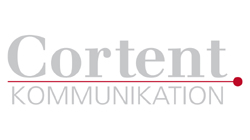The German Mittelstand
A market of no use to anyone

The new technological index – a summer’s tale
A piece of news came rolling off the presses a few weeks ago raising a great hullabaloo as it did so. The Federal Government Minister for the Economy, and several leading players on the capital market, were talking about a resurrection of the new market. Germany is important as home to a vast quantity of cutting edge technology and so it should have a technological index – above all for young, small and medium-sized industries. This would give companies new sources of finance to draw from, while private equity investors would have a further exit canal. Certain investors and entrepreneurs began to get warm on the idea. Something along the lines of Nasdaq should work on the German capital market too.
Others shuddered as they cast their minds back to the horrifying crisis of confidence that the turn of the millennium cast over the stock market, which led to the closure of the New Market. As things turned out, there was nothing to get hot under the collar about; it was almost as though the idea had been disqualified, even before getting off the starting blocks. There were a number of reasons for this.
The first has to do with the person who first thought the idea up. After losing the elections, the former minister for the economy Philipp Rössler vanished together with his party – the liberals of the FDP were thought to be sympathetic to the world of small and medium-sized industries – into the mists of oblivion. Whether or not the idea outlived its creator is yet to be seen, because the fact is that small and medium-sized industry already has a simplified way of getting on to the market, of which the so-called Entry Standard of the Frankfurt Bourse is an example. It is however true that this index is of little interest to institutional and non-German investors because its security is lower. Companies applying for listing in the Entry Standard are required to issue a prospectus. So the very thing that keeps investors happy is having the exact opposite effect on companies because having to publish a prospectus means that they no longer sail in the relatively safe waters of the Frankfurt Bourse but are obliged to follow European law. This complicates matters somewhat, it incurs higher costs and, because of the greater need for consultancy on interpretation, makes it not quite the most economically attractive source of raising capital.
If the target is to attract international investors, the technological index would have to be more strictly applied than is Entry Standard. Small to mid-sized industry would have the problem of having to prepare quarterly reports, communicate with the capital market in two languages, and regularly prepare a minimum flow of information couched in language appropriate to investors, costs that experience has shown small to mid-sized companies are reluctant to get involved in. Start-up enterprise is especially dependent on fresh capital and cannot afford to manage the funding and upkeep of such a structure.
There always have to be two parties involved in market work, and the stock market has issuers and investors. The idea of a German Nasdaq is a non-starter. Those who use their fingers to count the success stories of small and mid-sized companies getting launched on the stock market can keep one hand in their pocket. As long as third-party capital is regulated so advantageously, and self-raised capital so strictly, small and mid-sized company interested in IPOs will be few and far between. The German market cannot afford another debacle.
In future, international investors interested in German technology companies will have to engage in stock picking if they are looking to invest under TecDAX.
The 2.0 version of the New Market is still a long way off – and that is not at all a bad thing.















